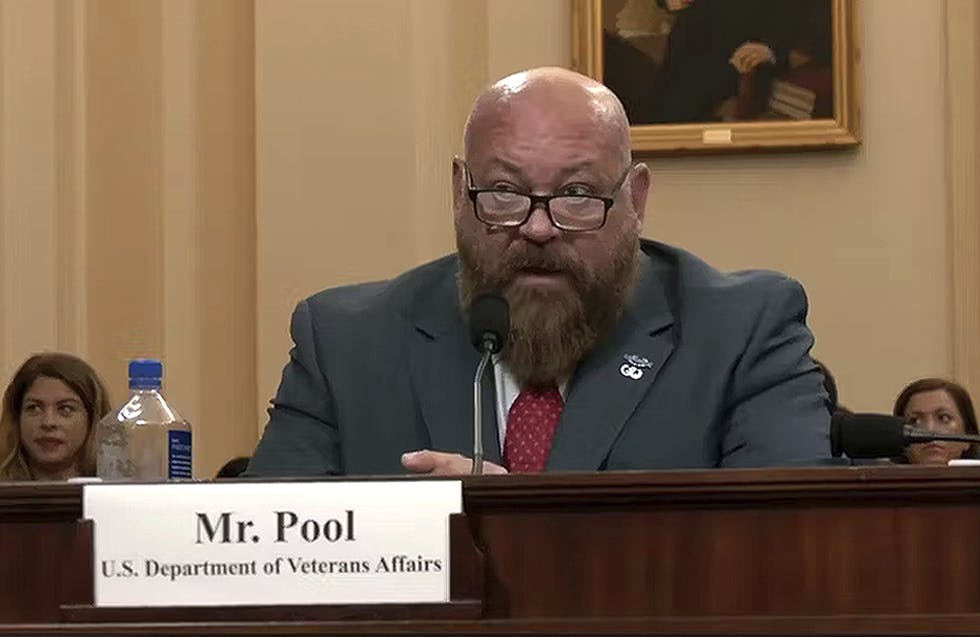Overcoming Innovation Challenges in the Federal Government

Chief information officers from across the federal government are addressing the challenges of a demanding data-driven world by ramping up efforts to improve innovation.
One of the greatest challenges is instilling a culture of change in the workplace, according to leaders from the U.S. Army, Department of Homeland Security and Office of the Director of National Intelligence at Tuesday’s GDIT Emerge event in Washington, D.C.
One sentiment among them during a panel session was that software typically provides notification of when it needs updating, but knowing how and when to update the workforce is not as clear. For DHS CIO John Zangardi, that means taking a look at capabilities of your staff.
“You’ve got to look at the technical acumen of your staff,” he said. “We have spent the last 18 months trying to bring on board that critical, technical expertise that can fuel innovation.”
That is not to say agencies shouldn’t invest in making their current talent more technically proficient. Zangardi noted that the agency is sending someone to get their master’s degree in systems engineering.
Recognizing the impact of workforce training, DHS is not the only federal agency determined to find solutions.
Having copious amounts of data stored across multiple domains has presented another challenge of innovation, particularly for the intelligence community.
“We have some of the challenge of we’re on multiple domains … and most of the information is actually at the higher-level domain,” said Deputy CIO La’Naia Jones for the intelligence community at ODNI. “It’s the balance of how can we embrace technology to help modernize user application tools but … help to expedite the processes.”
One solution that ODNI is working toward with regard to cloud architecture is integrating multiple clouds and focusing on the interoperability of government and commercial technology products, Jones said.
Without data analytics, though, the abundance of data collected by federal agencies doesn’t serve much purpose in providing information. There is no context. “We’re data-rich, but analysis-short,” noted Zangardi.
For this reason, the Army has a chief analytics officer whose job is to turn data into actionable intelligence.
At a time when “data is the new oil,” said U.S. Army Deputy CIO Gregory Garcia, finding value in collected data is more important than ever.
A final sentiment shared among the panelists was the lengthy, paperwork-filled risk-management process that hinders innovation can benefit from industry collaboration.
“One of my great frustrations is the amount of paperwork that goes along with that compliance,” said Zangardi. “One of the things industry can really help people like me with is how do we get to a greater degree of automation to bring that paperwork down because it really slows us down.”
Garcia echoed similar frustration in terms of artificial intelligence. “You’re writing algorithms every day that are different … you can’t have a 90-day risk-management framework process to approve that … For us, it’s the risk-management framework. It’s not the risk-management-compliance framework.”
This is a carousel with manually rotating slides. Use Next and Previous buttons to navigate or jump to a slide with the slide dots
-

NSF Wants Industry Driving Quantum Innovation
The agency is pushing for partnerships to enhance the research community as Congress weighs additional legislation.
3m read -

White House Science Chief: US-Driven AI Sets Global Standards
Michael Kratsios outlined how American AI technology on the global stage will help standardize the tech and counter China’s influence.
5m read -

Modernizing Critical Infrastructure in the Face of Global Threats
Officials are expanding the latest strategies in boosting defense infrastructure, including securing satellite communications, upgrading enterprise-wide technology, optimizing data management.
20m watch -

Trump AI Orders Call for Speed in Building Infrastructure
The directives call for expanding AI infrastructure, streamlining federal permitting and promoting AI exports.
4m read -

DOD Accelerates Software Modernization with Agile DevSecOps Push
The Pentagon's software implementation plan tackles cultural hurdles and integrates security early to deliver critical capabilities faster.
6m read -

White House Unveils AI Action Plan to Secure Global Dominance
The strategy outlines steps to accelerate private sector innovation, build critical infrastructure and advance U.S. leadership in AI policy and security.
3m read -

VA's Platform One Powers Rapid Innovation to Bolster Digital Services
VA's Platform One accelerates software development timelines from weeks to hours, ultimately enhancing digital services for veterans.
5m read -

Federal Leaders Receive Federal IT Efficiency Flywheel Awards from GovCIO Media & Research
Five federal IT leaders received Flywheel Awards for driving innovation and modernizing technology at the Federal IT Efficiency Summit.
5m read -

Doing More with Less is Muscle Memory for IRS, Former Deputy CIO Says
Darnita Trower discusses her experience, the legacy she’s left behind and how she pushed the IRS to modernize itself,
20m watch -

Opinion: Original Intelligence Is the Missing Piece for AI Transformation
Limitations of AI agents and development drive growing needs for workforce development and "original intelligence."
3m read -

VA CIO Targets Modern IT and Smarter Workforce Alignment
Agency leaders told lawmakers they are focused on trimming legacy systems and restructuring its workforce to streamline operations.
3m read -

Pentagon's $200M AI Contracts Signal Broader Effort to Transform Talent
The Army is leveraging Silicon Valley, reservist programs and new hiring strategies to integrate critical digital skills in its ranks.
5m read
















